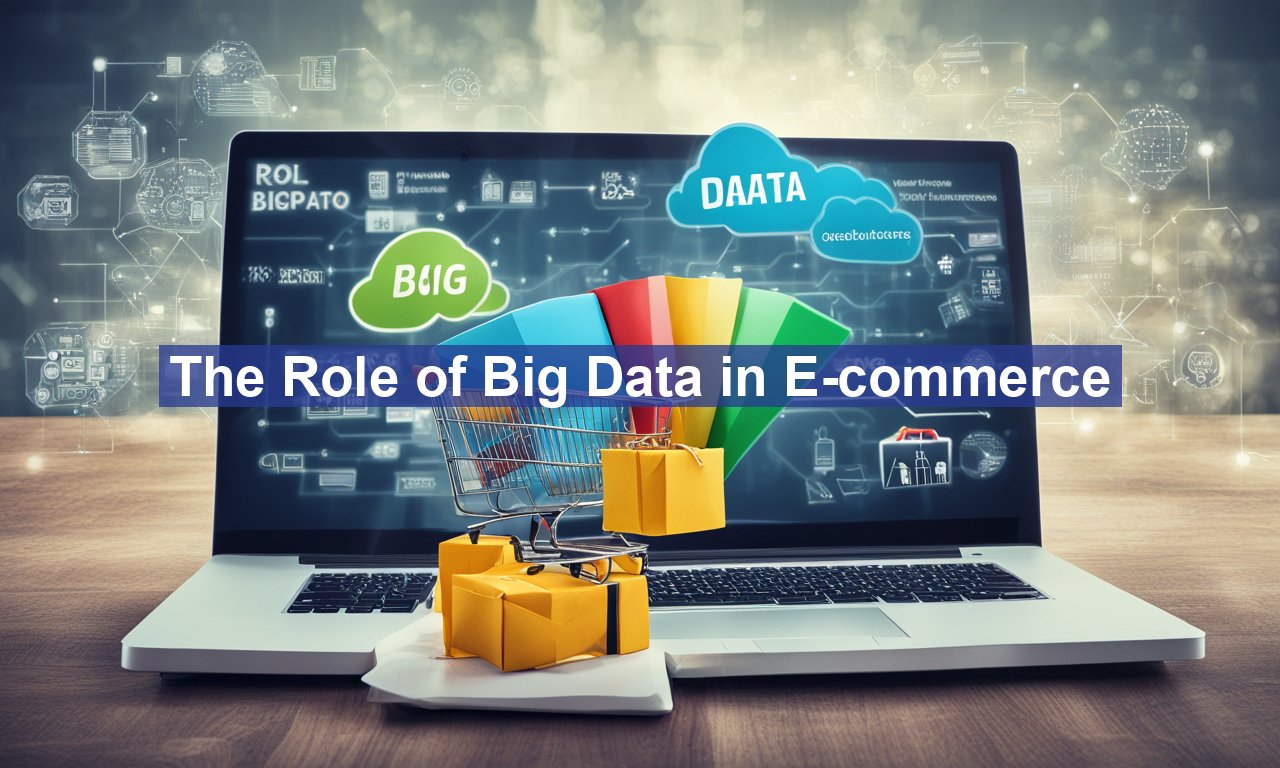The role of big data in e-commerce If you’ve ever shopped online, you’re part of an enormous web of data that e-commerce businesses use to improve your shopping experience, forecast trends, and refine their strategies. the role of big data in e-commerce, making it smarter, swifter, and infinitely more customized. Let’s delve into how big data is shaping the future of online shopping in ways you might not even realize!
Understanding Big Data in E-commerce
Big data refers to enormous volumes of structured & unstructured data that businesses analyze to gain valuable insights. The role of big data in e-commerce this data comes from various sources such as customer behavior, social media interactions, transaction histories, and even IoT devices.
Types of Data in E-commerce
Customer Data
- Personal Information: Names, addresses, payment details.
- Behavioral Data: Browsing patterns, purchase history.
- Psychographic Data: Preferences, sentiment analysis from social media.
Product Data
- Inventory details.
- Sales performance analytics.
- Review and feedback scores.
Market Data
- Competitor analysis.
- Market trends.
- Economic indicators.
How Big Data Enhances Customer Experience
Personalized Recommendations
Ever wondered how Amazon always seems to know just what you’re looking for? That’s the magic of big data at play! By analyzing your past purchases and browsing history, e-commerce platforms can recommend products that you’re more likely to buy. A study by McKinsey found that personalization can reduce acquisition costs by as much as 50%, making it a win-win for both businesses and consumers.
Better Customer Service
Big data enables e-commerce companies to anticipate customer needs and resolve issues more efficiently. By analyzing common complaint patterns, businesses can identify problems before they escalate, providing a smoother shopping experience. Faster query responses, automated customer support via bots, and even predictive maintenance of online platforms are ways big data is improving customer service.
Dynamic Pricing
You might have noticed that flight tickets or hotel room prices seem to change every time you check. This is dynamic pricing at work, driven by big data. E-commerce businesses adjust their prices in real-time based on demand, stock levels, and even customer profiles to maximize revenues.
Optimizing Operations through Big Data
Inventory Management
One of the biggest challenges in e-commerce is ensuring the right products are in stock at the right time. Big data analytics helps predict demand trends so that businesses can manage their inventory more efficiently. Companies like Zara use sophisticated algorithms to track real-time sales and customer preferences, making their supply chain more agile.
Targeted Marketing Campaigns
Gone are the days of blanket marketing campaigns with uncertain returns. Big data allows businesses to design highly targeted campaigns by understanding customer preferences and behaviors. Companies can segment their customer base into more refined categories, ensuring that their marketing messages reach the right audience. This boosts conversion rates and enhances the return on investment for marketing campaigns. For further reading, check out this article on Harvard Business Review.
Fraud Detection
Fraud is a significant concern in e-commerce. Big data can play a crucial role in mitigating this risk. By analyzing transaction patterns, location data, and other metrics, businesses can flag suspicious activities and prevent fraud before it happens. Advanced machine learning algorithms are becoming increasingly adept at identifying and mitigating fraud, ensuring a safer shopping environment for customers.
Challenges In Leveraging Big Data
While big data offers numerous advantages, it’s not without its challenges. Here are a few to placement in mind:
- Data Privacy: Collecting and analyzing customer data comes with significant privacy concerns. E-commerce companies must comply with stringent regulations like GDPR to safeguard customer information.
- Data Quality: The efficacy of big data analytics depends on the quality of data collected. Incomplete or incorrect data may lead to flawed insights.
- Integration Complexity: Integrating multiple data sources and systems requires significant effort and resources.
The Future of Big Data in E-commerce
As technology continues to evolve, the role of big data in e-commerce will become even more critical. Expect to see advances in artificial intelligence and machine learning driving deeper insights and more precise predictions. Smart assistants and virtual shopping experiences will become more prevalent as companies continue to harness the power of big data to provide seamless, immersive experiences. To explore the future, check out this insightful piece on Forbes.
In summary, big data is not just a buzzword; it’s a linchpin in the e-commerce art. From enhancing customer experience and optimizing operations to driving future trends, its impact is far-reaching and transformative. As businesses continue to leverage big data, the possibilities for innovation and growth are virtually endless. So the next time you receive a personalized product recommendation or find the perfect item on sale, take a moment to appreciate the big data technologies that made it possible.


